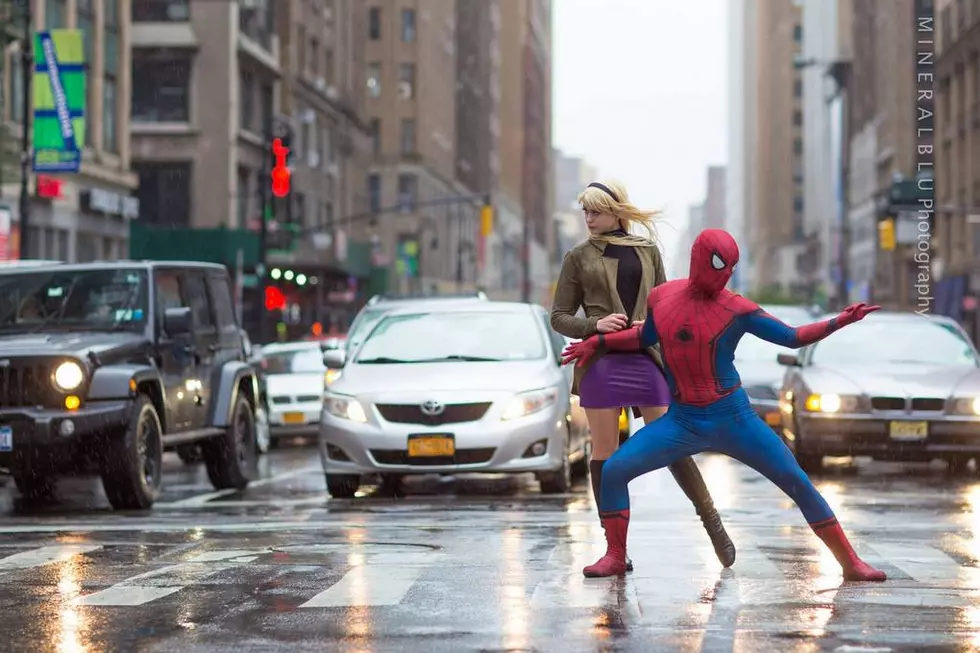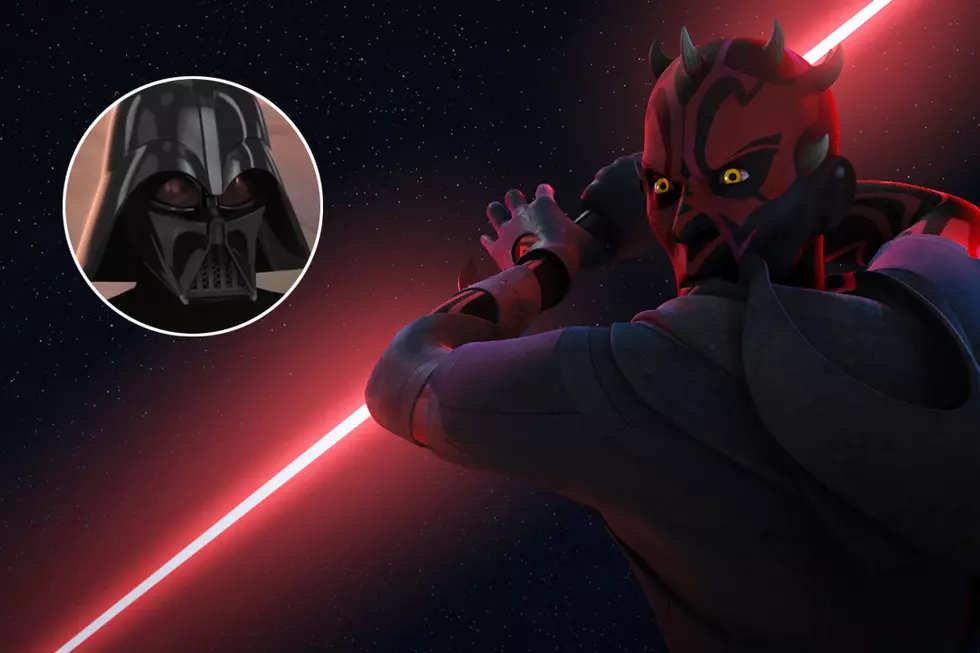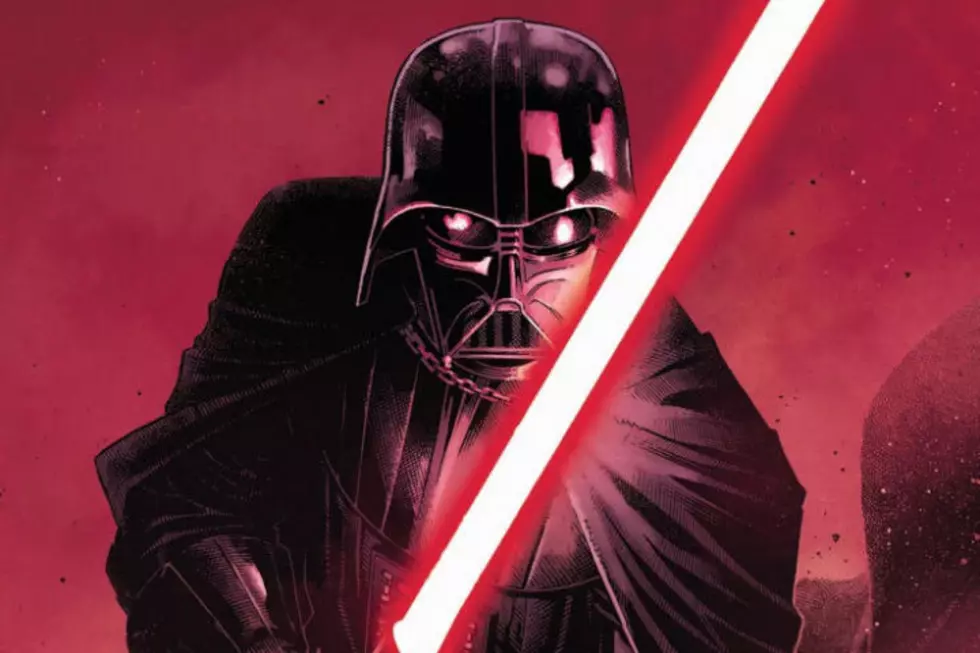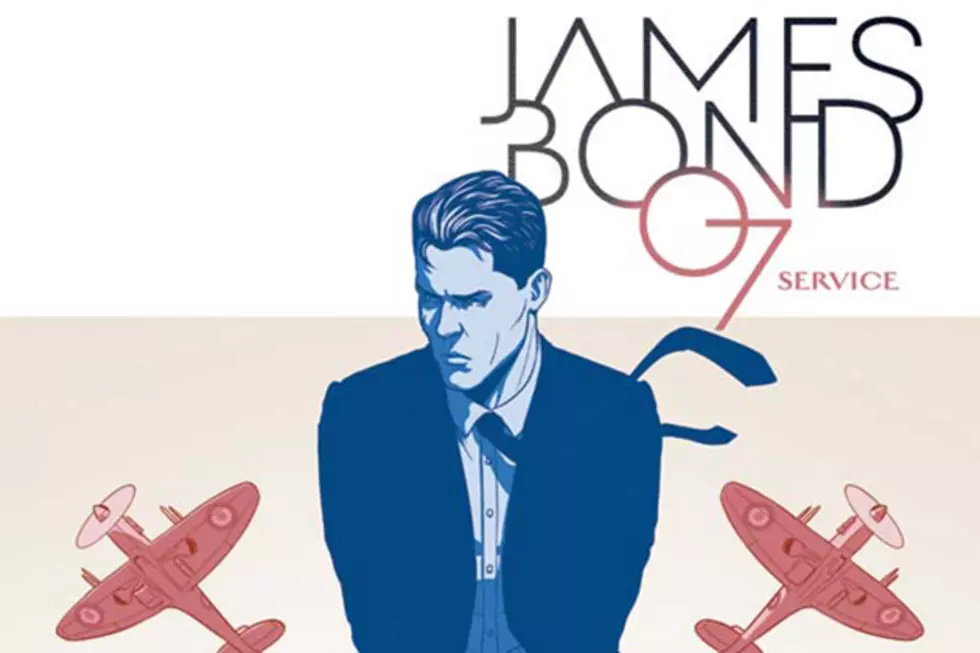![I, Vader: Kieron Gillen & Salvador Larroca Talk ‘Star Wars: Darth Vader’ [Interview]](http://townsquare.media/site/622/files/2014/07/Untitled-232.jpg?w=980&q=75)
I, Vader: Kieron Gillen & Salvador Larroca Talk ‘Star Wars: Darth Vader’ [Interview]
Few in the Star Wars universe are more enigmatic, more revered, or more quoted than Darth Vader. And yet, despite being introduced to Vader's conflicted adolescence and troubled past in George Lucas' most recent film trilogy, we are still not fully aware of who the galaxy's most sinister villain really is beneath that obsidian faceplate. Sure, some of us root for the rebels. Some align with the Empire. But we all, without a doubt, want to peek under the mask of the most interesting villain in the universe; especially during that mysterious time between the first Death Star's destruction and The Empire Strikes Back.
Now we finally get more pieces of the personality puzzle with a story taking place during a time when Vader's vengeful thirst for power solidifies. It's a period explored before in various Expanded Universe stories, but never before by Kieron Gillen (Young Avengers, The Wicked + The Divine) and Salvador Larroca (Invincible Iron Man, Uncanny Avengers). Their new ongoing series, Star Wars: Darth Vader, is one of three new series announced by Marvel at Comic-Con International in San Diego over the weekend, the first since Marvel acquired the Star Wars comic book license as a consequence of Lucasfilm's acquisition with Marvel parent Disney.
We spoke to the creative team about the psychology of sci-fi's most famous villain and what to expect from the new ongoing series.
ComicsAlliance: As long as Palpatine lives, Vader will always be the apprentice, constantly seeking his master's approval. What kind of effect does a massive failure like the destruction of the Empire's first Death Star have on their relationship? DoesVader feel responsible for failing to protect an ingenious weapon of mass destruction, and for the loss of hundreds of thousands in their military?
Kieron Gillen: You pick up on exactly the place we start the story – that's just a fascinating position for someone to be in. Vader wasn't solely responsible by any way, but he did let the rebels escape with the plans. It was his gambit, and it had just about the worst possible result. The question of exactly what he feels for is there – but mainly he feels for his failure. He'll admit it. Vader is not a shirker in any way.
But no, the Emperor isn't pleased in any way, and the strained relationship is right at the heart of the book.
Salvador Larroca: Vader is Vader, even being shadowed by Palpatine, he's the man, so even his faults are strong points in [the Star Wars] mythology. In fact, Vader is the true main character at all times.
CA: As the sole survivor of the Death Star, what is motivating Vader to continue aligning with Palpatine at this point in the war? Now knowing their history -- Anakin failing his mission on Mustafar, Palpatine rescuing him and piecing him back together -- we wonder if Vader operates from fear of failure or genuine loyalty. Is he truly embracing the Sith way (empowered by anger, revenge, and other negative emotions) or is he seeking connection, some kind of purpose through their relationship, light at the end of his dark tunnel?
KG: Yet more good questions – and you actually touch on some of this later. As outside viewers, we just can't be sure. The distance from Vader is such a big part of the character. After the cry of grief at the end of Revenge Of The Sith, he disappears beneath the black helmet. Why is he doing what he's doing?
A big part of the book is me showing how the motivation may change as we progress, how the relationship between he and the Emperor isn't static, and how new facts and new discoveries may alter that.
To state the obvious, at the end of A New Hope, Vader has no idea he has a son. At the start of Empire Strikes Back, he does. It's the mirror scene to Empire's “I am Your Father” and we never get to see it. That's one of the core driving parts of the book.
CA: You've got the chance to turn a villain like Vader into a sympathetic character once again. Is the goal to turn the audience's perspective of this character around, or will this series lean to the dark side?
KG: Bar the movies, my main influences when thinking about the series are The Godfather and House Of Cards. In other words, I'm looking for compelling, fascinating, horrifying and understandable – but not necessarily sympathetic. With all our cast, I want people to not be able to look away – and still, in it recognise something true about us as living creatures.
It also helps that Vader, for all his obvious failings, is a grand figure. My book isn't just about trying to hunt down the Rebels. That's what he does on Tuesdays. Vader has many more problems to deal with, from the underworld to other power factions inside the Empire who see this once-favourite's star falling. Given the option between Vader and some of the people he faces, we side with Vader. He has dignity and opera, for a start.
CA: Without question, Vader is a psychologically interesting character; we're drawn to him with great curiosity. Why do you think we connect with a character who's emotionally and physically disconnected from us? Were those characteristics were important to you in developing his story?
KG: It's fascinating, isn't it? Vader does so little yet every line is so weighted with meaning. For me writing it, keeping that dignity is a big part of it. I don't want to lean on thought balloons or narrators. I want to keep us a step away, and asking questions. We have suspicions, but we can't be sure. Vader will surprise you, basically. He's a puzzle.
SL: To me, bad guys are more interesting than good ones, so Vader is an iconic character; he's in the mind of generations; we all love him.
CA: Along similar lines, how do you both get into the head of somebody like Darth Vader? Beyond the films, what sort of stuff are you reading or listening to or watching to inspire you for this series?
KG: Bar obsessive note-taking analysis of the movies? Some of the things mentioned earlier – Godfather and House of Cards (both the original and the Netflix remake). I'm thinking of I, Claudius. The music is hard – I'm still working on a perfect playlist for it. Walking the line between the icy visage and the lightsaber-red passion beneath the armour is tricksy. Get back to me in February, eh?
SL: What inspires me is just the three old films. That's the real Vader to me.
CA: Salvador, what kind of tone did you want to take, when showing us a peek into this relationship between master and apprentice, and does Vader’s variously masked and twisted visage create challenges as you try to express power, anger, revenge, and mistrust?
SL: Do what's necessary to make him feel as he has to be. He's an iconic and powerful guy, so even if we do really bad, we won't disappoint his legend!
CA: How soon after the destruction of the Death Star does your series begin? Are we talking “Vader’s having to deal with the insurance adjuster,” or “Vader’s sitting in his busted-up TIE Interceptor as it floats through space, waiting for somebody to come pick him up”?
KG: Shortly afterwards. The Rebels are trying to leverage their success with the Death Star in an offensive. The Empire is still reeling from the enormous loss. Basically, we pick up with the Empire deciding what they're going to do to ensure this never happens again.
CA: Kieron, with this, your Loki-centric run on Journey Into Mystery, Lucifer in The Wicked + The Divine, and your Avatar series Über, it seems like you have a knack for writing bad guys. What is it about evil characters that appeals to you?
KG: Yeah, it worries me too. Even putting aside those books which are explicitly focused in on that, a lot of my superhero books spends a lot of time with the villains. In Three, there was as much with the Spartans as the helots, etc.
I look at the world and see so many people act unethically. My fiction is often an attempt to interrogate that. Why do we, as humans, make all these mistakes? Because all those monsters are just people too, and doing it for one reason for another – just awful, awful reasons. I obsess over it. Ethics are of fundamental importance to me and my self image. I also know that I'm not very good at it.
Which basically can be cut down to “write what you know.”
CA: Last question: will we finally find out what all those buttons on Vader’s chestplate do?
KG: You do get the image of Stormtroopers daring one another to actually press them, yeah?
SL: I guess those are the buttons for the galactic TV channels.
Star Wars: Darth Vader debuts in 2015.
More From ComicsAlliance
![Bond After Brexit: Kieron Gillen Declassifies ‘James Bond: Service’ [Interview]](http://townsquare.media/site/622/files/2017/03/Service_McKelvie-feat.jpeg?w=980&q=75)








